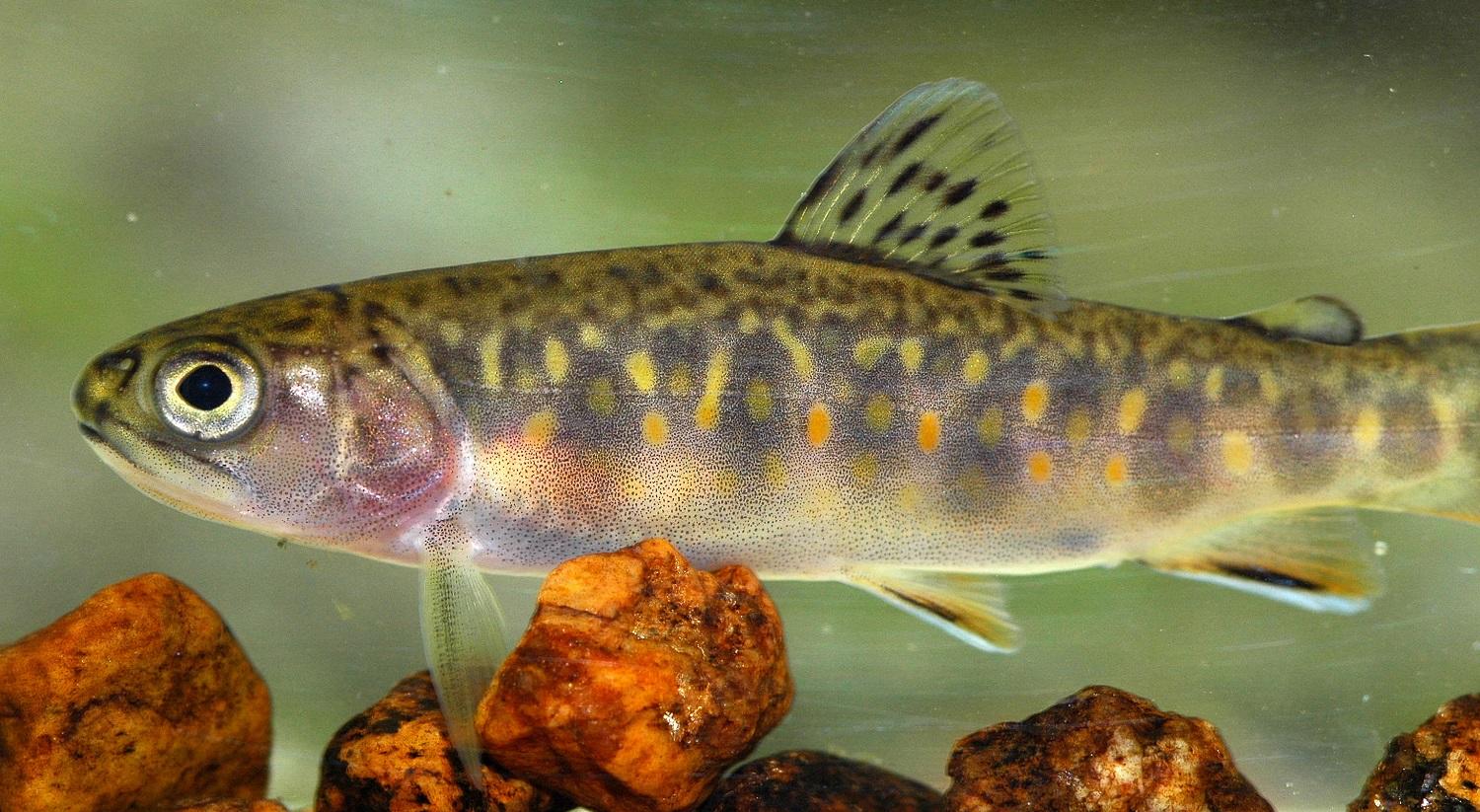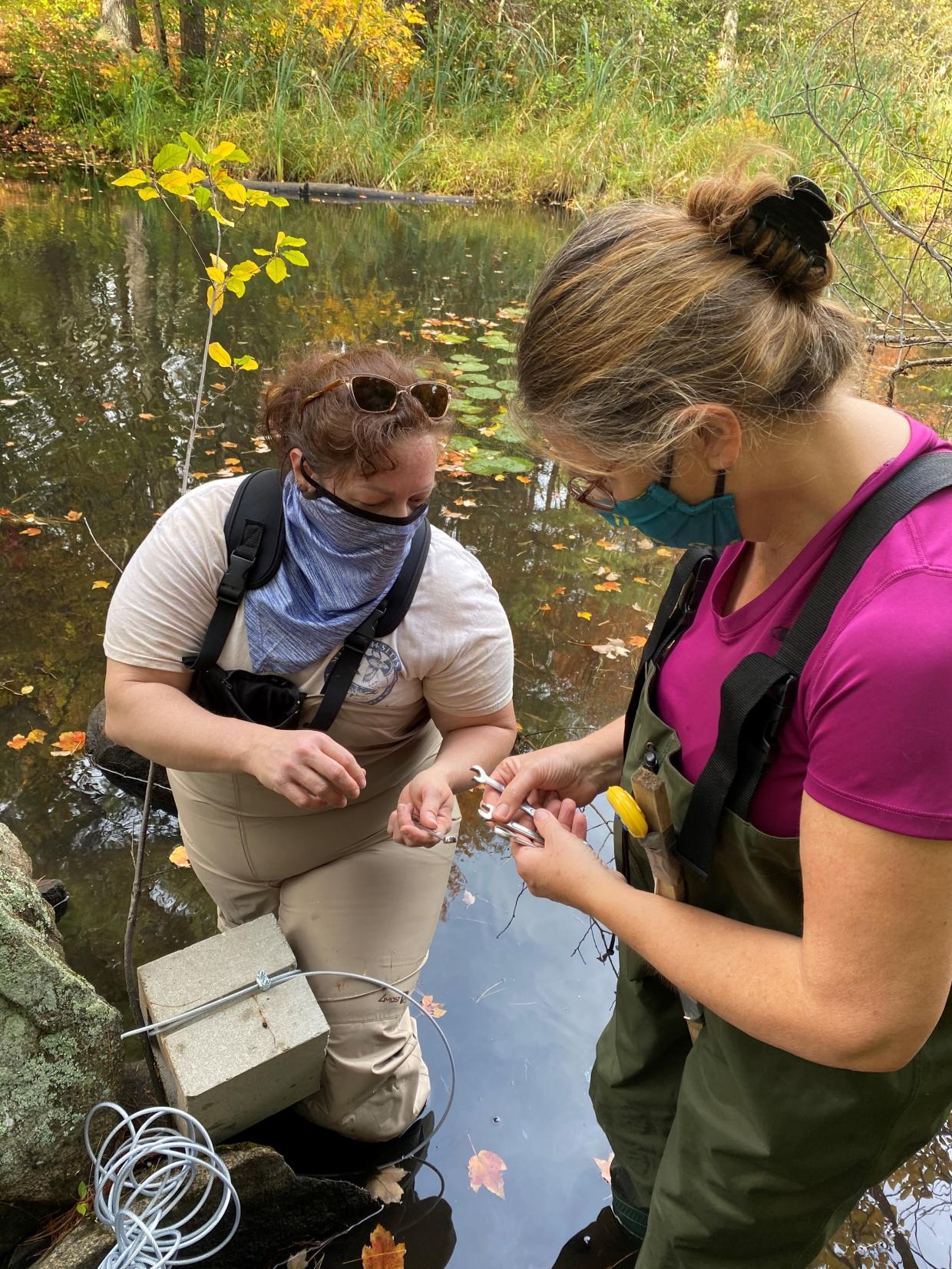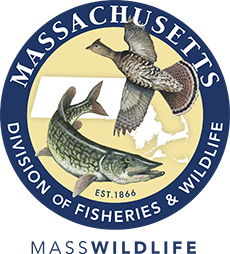- Division of Fisheries and Wildlife
Media Contact for Some like it hot, trout do not
Media Contact, MassWildlife

Imagine you're a fish that requires cold water temperatures even during the hot summer months; where do you go when seasonal drought conditions or longer term climate factors warm up your chilly stream habitat, lower water levels, and decrease flow rates? For the iconic brook trout or the lesser known slimy sculpin, year-round water temperatures no warmer than 68° F are critical to their reproduction and survival. Here in Massachusetts, waterbodies that support these sensitive fish species are referred to as Coldwater Fisher Resources (CFR). Changes in environmental factors can reduce the ability of CFRs or networks of coldwater streams to support trout and other aquatic wildlife. Fisheries biologists, environmental agencies, conservation groups, anglers, and watershed associations are collaborating on a state and regional effort to identify important coldwater patches (refugia) within a CFR where fish can retreat during the warmer months.
Locating coldwater refugia can help scientists, municipalities, and conservationists plan effective habitat protection efforts. To this end, U. S. Geological Survey scientists created a computer model to predict and identify areas within CFRs where brook trout may persist as water temperatures climb. The model uses temperature data collected from streams at regular intervals throughout the year. Using specialized temperature dataloggers placed in coldwater streams, the data is uploaded to a stream temperature database. Placement of the dataloggers and downloading the information is where partnerships play a significant role.
One such partnership in Massachusetts involves the Nashua River Watershed Association (NRWA), the Squan-a-Tissit Chapter of Trout Unlimited (TU), and MassWildlife. Using grant funds from the Massachusetts Environmental Trust, NRWA purchased 12 dataloggers to be used in tributaries of the Nashua River in northern Middlesex county, adding to nine devices deployed in 2019. With guidance from MassWildlife, NRWA and TU members scouted streams for potential datalogger locations and the devices were installed this fall. Next spring and summer as water temperatures rise, volunteers and staff will check the dataloggers for accuracy and then download their data for the computer model. The partners will also use this information to keep track of stream conditions and inform habitat improvement and stewardship efforts on the watershed level. Acquiring land or otherwise protecting areas from development within the watershed is one way to safeguard areas of cold water refugia. Replacing or upgrading culverts can help fish more easily reach cooler areas upstream. A similar partnership is underway with the Blackstone River Watershed Association in southern Worcester county.
The ultimate goal of this project to take conservation actions that will benefit vulnerable aquatic species that require cold and cool waters. In the long term, the collected information and model will help conservationists make better habitat management and protection decisions.

